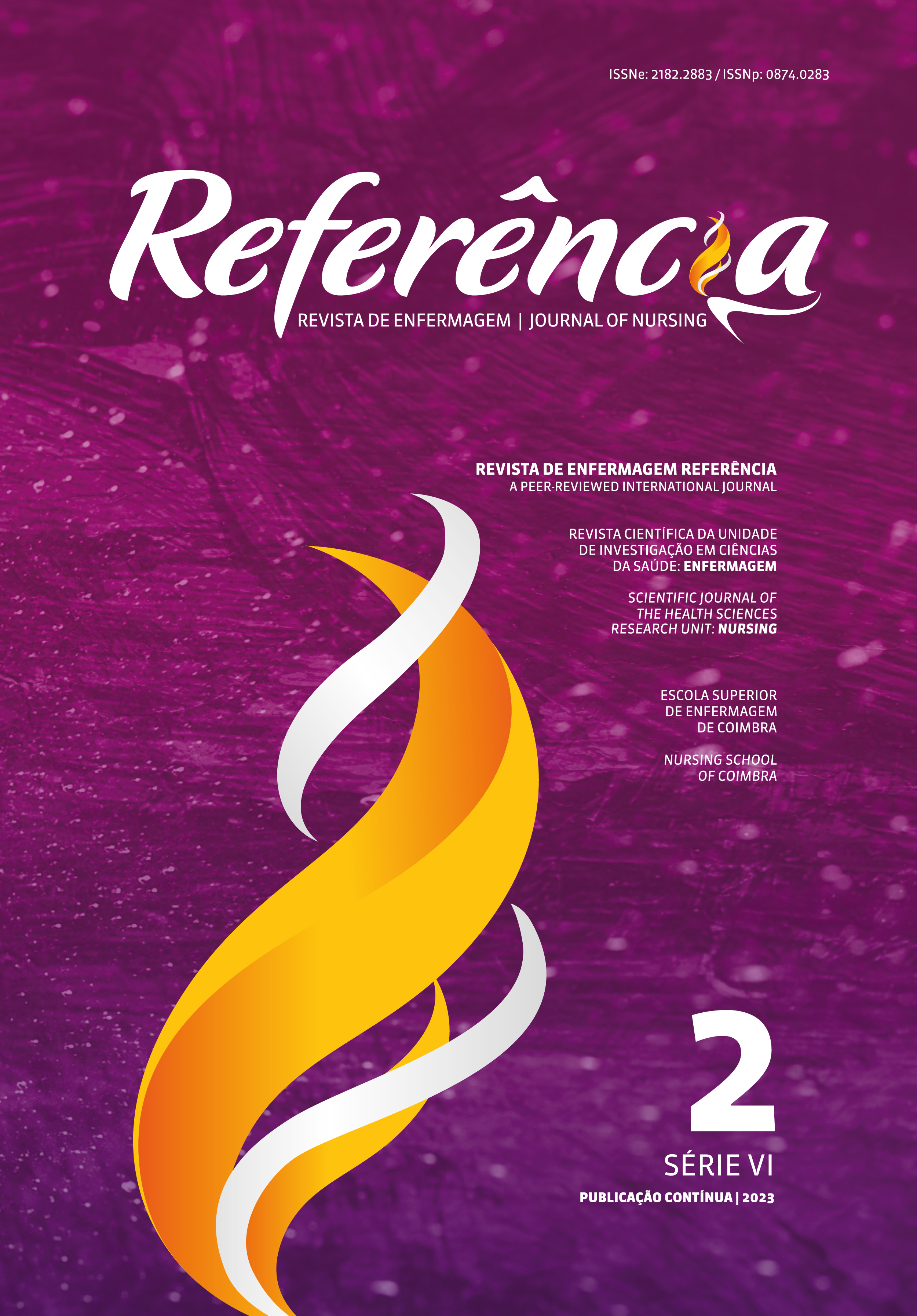Rehabilitation nursing: Functional independence after surgery for head and neck cancer
DOI:
https://doi.org/10.12707/RVI23.15.29294Keywords:
rehabilitation nursing, field dependence-independence, head and neck cancer, maxillofacial surgery, tracheotomyAbstract
Background: Surgery for head and neck cancer (HNC) compromises patients’ functional capacity and self-care, thus early rehabilitation is crucial. There is little scientific evidence in this area, particularly in demonstrating the positive impact of the intervention of rehabilitation nurses (RNs) on the functionality and level of dependence of patients undergoing HNC surgery.
Objective: To assess the level of dependence at clinical discharge in patients undergoing HNC surgery with the intervention of RNs.
Methodology: A quantitative, observational, and retrospective cohort study was conducted to compare these two groups of patients with and without intervention.
Results: In this sample (n = 133), the length of stay was reduced (5.02 days) in the intervention group.
The differentiated intervention improved the functional capacity and independence of tracheostomized patients (RR:1.55; 95% CI [1.04;2.31]; p = 0.03), after adjusting for confounding factors in the High Discharge Barthel Index variable.
Conclusion: RNs’ specialized care for patients undergoing HNC surgery, as part of a multidisciplinary intervention, is fundamental to reducing the level of dependence after surgery.
Downloads
References
Araújo, F., Ribeiro, J., Oliveira, A., & Pinto, C. (2007). Validação do índice de Barthel numa amostra de idosos não institucionalizados. Revista Portuguesa de Saúde Pública, 25(2), 59-66. http://hdl.handle.net/10362/95522
Baijens, L. W., Walshe, M., Aaltonen, L. M., Arens, C., Cordier, R., Cras, P., Crevier- Buchman, L., Curtis, C., Golusinski, W., Govender, R., Eriksen, J. G., Hansen, K., Heathcote, K., Hess, M. M., Hosal, S., Klussmann, J. P., Leemans, C. R., MacCarthy, D., Manduchi, B., … Clavé, P. (2021). European white paper: Oropharyngeal dysphagia in head and neck cancer. European Archives of Oto-Rhino-Laryngology, 278(2), 577–616. https://doi.org/10.1007/s00405-020-06507-5
Bannister, M., & Ah-See, K. (2015). Enhanced recovery programmes in head and neck surgery: Systematic review. The Journal of Laryngology and Otology, 129(5), 416–420. https://doi.org/10.1017/S0022215115000936
Burgos-Mansilla, B., Galiano-Castillo, N., Lozano-Lozano, M., Fernández-Lao, C., Lopez-Garzon, M., & Arroyo-Morales, M. (2021). Effect of physical therapy modalities on quality of life of head and neck cancer survivors: A systematic review with meta-analysis. Journal of Clinical Medicine, 10(20). https://doi.org/10.3390/jcm10204696
Cohen, E. E., LaMonte, S. J., Erb, N. L., Beckman, K. L., Sadeghi, N., Hutcheson, K. A., Stubblefield, M. D., Abbott, D. M., Fisher, P. S., Stein, K. D., Lyman, G. H., & Pratt-Chapman, M. L. (2016). American cancer society head and neck cancer survivorship care guideline. CA: A Cancer Journal for Clinicians, 66(3), 203-239. https://doi.org/10.3322/caac.21343
Direção-Geral de Saúde. (2017). Programa nacional para as doenças oncológicas. https://www.sns.gov.pt/institucional/programas-de-saude-prioritarios/programa-nacional-para-as-doencas-oncologicas/
Ferlay, J., Ervik, M., Lam, F., Colombet, M., Mery, L., Piñeros, M., Znaor, A., Soerjomataram, I., & Bray, F. (2020). Global cancer observatory: Cancer today. https://gco.iarc.fr/today/home
Frade, A. I., Espiney, L., & Pinto, V. M. (2022). Vulnerability, health information right and the contributions of augmentative and alternative communication for people with aphasia. Clinical Ethics, 0(0), 1-3. https://doi.org/10.1177/14777509221105397
Grattan, K., Kubrak, C., Caine, V., O’Connell, D. A., & Olson, K. (2018). Experiences of head and neck cancer patients in middle adulthood: Consequences and coping. Global Qualitative Nursing Research, 5. https://doi.org/10.1177/23333936187603
Marques-Vieira, C., & Sousa, L. (2016). Cuidados de enfermagem de reabilitação à pessoa bao longo da vida. Lusodidacta.
Miguel, S., Zamarioli, C., Carvalho, E., & Caldeira, S. (2019). The human responses and nursing diagnoses of head and neck cancer patients: Literature review and bsynthesis of evidence. Cadernos de Saúde, 11(1), 19-29. https://doi.org/10.34632/cadernosdesaude.2019.5274
Mills, C. S., Michou, E., King, N., Bellamy, M. C., Siddle, H. J., Brennan, C. A., & Bojke, C. (2022). Evidence for above cuff vocalization in patients with a tracheostomy: A systematic review. The Laryngoscope, 132(3), 600–611. https://doi.org/10.1002/lary.29591
Moreira, J., Fonseca, P., & Miguel S. (2022). A pilot study on a nurse rehabilitation program: Could it be applied to COVID-19 patients? International Journal of Environmental Research and Public Health, 19(21), 14365. https://doi.org/10.3390/ijerph192114365
Nayak, S., Pai, M. S., & George, L. (2018). Self-image and quality of life among head and neck cancer patients. Journal of Clinical and Diagnostic Research, 12(8), XC01–XC05. https://doi.org/10.7860/JCDR/2018/30770.11875
Ordem dos Enfermeiros. (2010). Regulamento das competências especificas do enfermeiro especialista em enfermagem de reabilitação. https://www.ordemenfermeiros.pt/arquivo/legislacao/Documents/LegislacaoOE/RegulamentoCompetenciasReabilitacao_aprovadoAG20Nov2010.pdf
Queirós, S., Santos, C. B., Brito, M., & Pinto, I. (2017). Fatores condicionadores do desenvolvimento da competência de autocuidado na pessoa com ostomia de ventilação. Revista de Enfermagem Referência, 4(14), 57-67. https://doi.org/10.12707/RIV17010
Sheikh, A., Shallwani, H., & Ghaffar, S. (2014). Postoperative shoulder function after different types of neck dissection in head and neck cancer. Ear, Nose, Throat Journal, 93(4-5), E21–E26. https://research.ebsco.com/c/t56eot/viewer/pdf/tk7oz7tkuz
Steegmann, J., Bartella, A., Kloss-Brandstätter, A., Kamal, M., Hölzle, F., & Lethaus, B. (2020). A randomized clinical trial on the effica of a patient-adapted autonomous exercise regime for patients with head and neck cancer. Journal of Cranio-Maxillo-Facial Surgery, 48(3), 187–192. https://doi.org/10.1016/j.jcms.2019.12.009
Twomey, R., Culos-Reed, S. N., Daun, J. T., Ferber, R., & Dort, J. C. (2020). Wearable activity trackers and mobilization after major head and neck cancer surgery: You can’t improve what you don’t measure. International Journal of Surgery, 84, 120–124. https://doi.org/10.1016/j.ijsu.2020.10.032






















